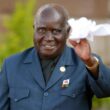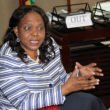On Prime TV and on a live programme organised by News Diggers (28.02.2020), Father Chikoya of the Council of Churches in Zambia argued:
“The church overall should re-evaluate its relationship [with the state]. This close affinity to the corridors of power…is having a negative impact on the church. We cannot speak because…..there is ‘food’ in our mouth. That is not the place of the church. The church should
always have a preferential option for the poor, for the marginalised, and the oppressed.”
This statement is instructive. It appears the ‘church’ in Zambia now plays duo roles. First, it has become a platform for covering up state ineptitude, lack of transparency, corruption, and poor economic performance, making nonsense of any form of social contract the government might have with citizens.
The church somewhat provides the corrupt ruling elites a place of refuge on which “common man” (in PK Chishala’s words) would find it difficult to question and demand social justice. Second and related to the first is that it plays a role of blocking citizens from demanding social justice and questioning state decisions such as those related to economic performance and abuse of state funds. These two elements have been advanced and deployed – fortunately or fortunately – by the masterminds in politics and the church as a front towards 2021 General Elections. I predict this powerful and important social institution – the church – being co-opted by political power will be let loose after 2021 and there lies trouble for ordinary Zambians.
First, the church is among the most trusted institutions in Zambia, enjoying high levels of public trust compared to the state or private sector with about 96% of Zambians identifying themselves as Christians. But let us be clear about this. The church is not a homogenous entity. Some religious bodies have played a crucial in the historical development of Zambia, as mediators, advocates for socio-economic justice, supplementing government efforts in social service provision. In his 2018 article, Paul Gundani reveals between 1964 and 1972, church-state relations in Zambia were harmonious and characterised by mutual respect. He argues this was partly because the UNIP government was accountable to the people and that by all accounts Zambia was a promising democracy.
But the church could not stand aside and look when Zambia’s political and economic
performance showed signs of cracking. With the introduction of a one-party state in 1972, the state conveniently viewed the role of the church as “spiritual, questioning and challenging its competence to comment on political issues. In somewhat of a move to conceal its own injustices, the state viewed the church’s duty as that of praying for political leaders. But incompetence always has a way of showing itself. By mid-eighties, Zambia started showing signs of economic and political decline due to failed economic policies and escalating external debt, forcing the government to return to the International Monetary Fund and the World Bank sponsored programme in 1989. This was compounded by serious erosion of civil liberties emerging from an effective silencing of civil society by UNIP and individuals being intimidated by state security agents. These changes left the church as the only independent ‘civil society’ movement left standing.
As Gundani writes, from 1990 the Catholic Church reviewed its position in the face of worsening
human suffering, political dishonesty, injustice and oppression of the poor. The Catholic Church made a timely intervention on behalf of the poor through a pastoral letter (Zambia Episcopal Conference, Economics, Politics and Justice 1990), addressed to its Catholic members, the government and the general populace. Here the Bishops questioned the self-proclaimed ‘supremacy’ of the ruling party in the national discourse. In the Bishop’s view, the ruling party was supposed to subject its vision and agenda to the supremacy of the citizens. They lamented the systematic erosion of political and economic justice in the country, manifest through the growing gap between the rich and the poor. Kaunda’s political manoeuvres remained unsuccessful in alienating the church from the suffering masses. It is reported that the Bishop’s statement ignited a fire within the urban populace and more particularly the trade union movement in Zambia, eventually leading to the birth of multi-party-sm. Within this period, the church
helped to raise awareness by calling for national days of prayer for Zambia and by organising political seminars. In 1991, church leaders played a pivotal role in persuading and facilitating constitutional talks between Kaunda and Chiluba, with an agreement between the two, clearing way for elections in 1992.
On 23 September 1991, leaders of the mainline churches made it clear to all Christians that the role of the church was to foster peace, reconciliation and justice and show concern for the poor. Jimmy Carter, a former President of the US reportedly cited Zambia as a good case in which “the churches carried the trust of the people and made a decisive contribution to the re-establishment of democracy.” This is the church Zambians knew. This is the church many Zambians valued and appreciated. On the contrary, today’s church seems to have shamelessly relocated to the Independence Avenue. This trust is now abused and abused by the state to garner votes and misinform or silence its population. The government has done this by creating a Ministry of Religious Affairs in its own image.
This is mediocrity at highest level as the formula to development does not lie in who shouts Amen the loudest. The government and some church leaders know that no one country has ever developed by running a Ministry of National Guidance and Religious Affairs. No country out there has ever developed without uprooting corruption, effective resource expenditure and changing popular attitudes, norms and values. Poor countries are characterised by fatalistic attitudes which require transforming should serious development take place.
Facts are stubborn and penetrating. The Africa Development Bank reports: Real GDP growth
slowed to an estimated 2% in 2019, down from 4.0% in 2018. Economic activity is expected to remain weak, with growth rebounding moderately to 2.4% in 2020 and 2.9% in 2021. Overreliance on no concessional external borrowing since 2012—to finance large-scale infrastructure projects—has resulted in large fiscal deficits since 2014 (going from 6.5% of GDP in 2013 to 12.1% in 2015, 10.5% in 2018, and 7.7% in 2019). Large domestic payment arrears have also accumulated (9.7% in 2019). The rapidly increasing public debt (80% of GDP at the end of 2019, up from 35% at the end of 2014) places Zambia at a high risk of debt distress. Inflation rose from 7.5% in 2018 to 9.2% in 2019 and is expected to remain at 9% in 2020–21, pushed by large exchange rate depreciations and food price increases. The current account deficit is expected to widen to 2.8% of GDP in 2020–21 due to increased public investments and mining sector imports, and higher debt-service payments reduced foreign reserves to 1.6 month of imports at the end of 2019.
Where are the critical voices from the church? Addressing Zambia’s problems will not require
shouting amen loudest or church leaders kneeling with politicians under the pretext of humility. Our problems require application of critical minds to repair the damage made to the economy. It requires the church to lead public conversations on what has gone wrong and how to address these elements. Father Chikoya is right. The church must rethink their value and relevance in this new political discourse.
Maybe it is time Zambians started to withhold tithe and offering from church leaders camping on
the Independence avenue. At least my bible does not ask me to give my offering and tithe to thieves and false prophets entrenching injustices against poor and vulnerable people.
(Simon Manda, PhD
Lecturer of Development Studies, University of Zambia)













4 Responses
This is what we need to hear from now going forward as we approach 2021 ,firm institutions, firm ngos , firm voices of hope in this wilderness created by politics of the belly due to highest levels of poverty .
Religion is crippling our country and stopping us from thinking critically. People should realize that God’s plans can never be changed by pastors and the humble man. God has already decided on where we are going but it’s up to us to choose the actual route we shall use. If we want to delay our success by believing these fake prophets and continuing to trust humble man, it will take us decades to reach our destination. Humble man and his praise-singing pastors are our impediments to development.
Sad Patriot. You bring to my mind the case of the Children of Israel leaving Egypt for the Promised land. The destination was clear right from the start. Yet a short journey took 40 years and those in the group except for 2, never even made it to the promised land. Our Heavenly Father freely gave us brains to use. People blunder when they refuse to use their brains. Think. We have all the resources already. Pray for wisdom and then get going. Dont be lazy. We have too many lazy politicians and lazy citizens. Add to this mess, cowardice!
It is pentecostal christianity that is the enemy of democracy in Zambia. Men of gods cannot coax anymore money from the people because the people are barely surviving and the only way to get money is to seek patronage of those who control national treasury. Imagine a full pastor speaking in the name of god that leadership comes from god, and if indeed it is true then I question the morality of gods who give leadership to the garbage that is ruining Zambia today and the the rationality of holding elections when the same garbage of men of god can simply prophesy who is to rule Zambia and save Zambia a lot of money. Each time I look at the on going works at UTH funded by Saudi Arabia, an Islamic nation, I wince in shame for how can a chrsitian nation receive charity from Muslims when it has fire impact men of god who claim to heal?